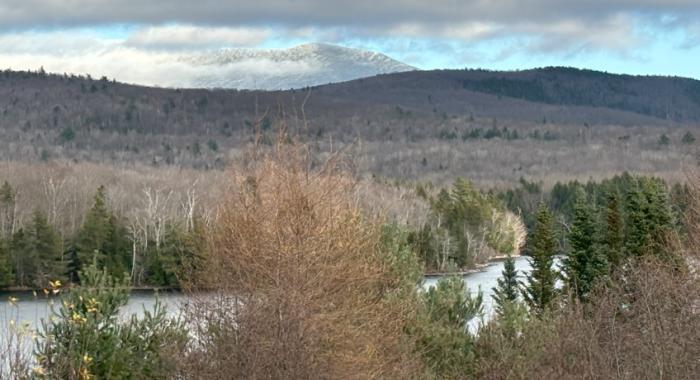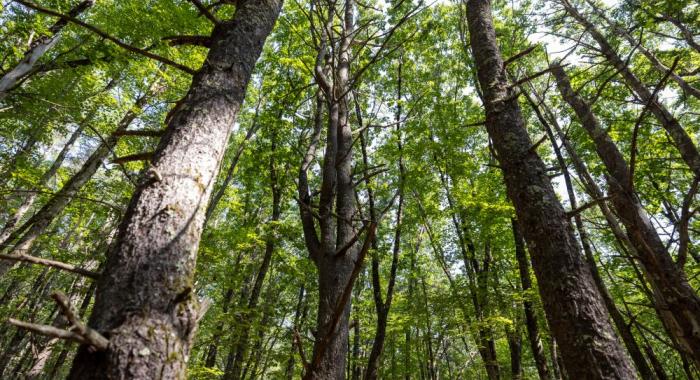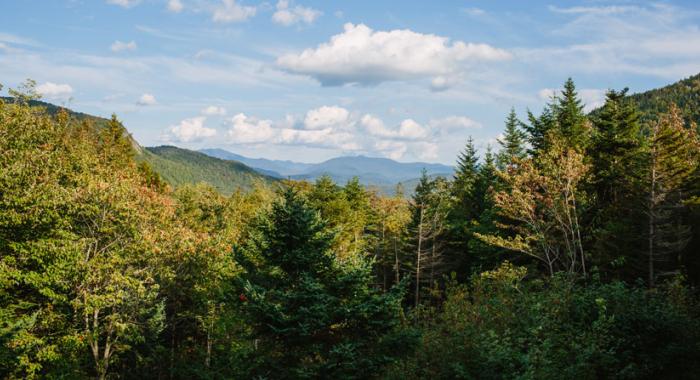Forest Society Blog - News & Features
Search filters
Results

Granite Geek: Keeping deer away, another example of unintended consequences
February 16, 2026As reported by David Brooks in the Concord Monitor, the Forest Society is testing innovative “slash” techniques in Henniker to protect regenerating hardwoods from overbrowsing by White-tailed deer. By studying whether slash walls or ground cover better deter deer, the project aims to develop practical, data-driven guidance for landowners working to grow healthy, resilient forests.
- Tags:
- Wildlife,
- Forestry,
- Working Forests

Explore a Winter Timber Harvest in Henniker
Join Forest Society forestry staff and a UNH Extension Forestry Educator on Saturday, February 14 (9:30 AM–12:30 PM) at Dudley Pond in Henniker for a free, guided hike through an active timber harvest. Discover how sustainable forestry works, how trees are selected during a harvest, and how forests regenerate over time on this behind-the-scenes tour.
- Tags:
- Forestry,
- Working Forests
Forest Society honored with Employer Leadership Award by the National Society of American Foresters
The Forest Society is proud to receive the 2025 Employer Leadership Award from the Society of American Foresters, recognizing our longstanding support for professional development and leadership in sustainable forestry.
- Tags:
- Forestry,
- Working Forests

Federal Judge Rules with Forest Service on Plans To Log Near Piermont, Gorham
August 22, 2025A federal judge recently upheld the U.S. Forest Service’s plans for timber harvests in the White Mountain National Forest near Piermont and Gorham. Forest Society President Jack Savage noted the ruling affirms that the Forest Service followed the law and struck a reasonable balance between conservation and forest management.
- Tags:
- Forestry,
- Working Forests,
- Advocacy

Court Upholds White Mountain National Forest Management Plan
A federal court in New Hampshire has upheld the White Mountain National Forest’s management plan, rejecting a legal challenge to two proposed timber harvests. The Forest Society, along with conservation and forestry partners, filed an Amicus brief supporting the U.S. Forest Service’s ability to use well-planned silviculture to balance forest health, resilience, and multiple long-term goals.
- Tags:
- Advocacy,
- Forestry,
- Working Forests

Bethlehem’s Underhill Acres Conserved as a Legacy Forest
In summer 2025, the Underhill family donated a conservation easement on their 258-acre property in Bethlehem. Owned since 1946 and one of the oldest certified Tree Farms in the country, Underhill Acres will remain in family hands while permanently protecting its forests, wildlife habitat, and over a mile of stream and river frontage. The property will host the 2025 NH Tree Farm Field Day on September 13.

Forest Society's Wendy Weisiger, Wins Granite State Forester of the Year
At last week's Granite State Division NESAF meeting, the Forest Society's Managing Forester is honored for her successful and dedicated career in New Hampshire's forestry community.
- Tags:
- Forestry,
- Working Forests,
- Land Conservation

Forest Society Leads Effort to Support White Mountain National Forest Management Plan
Our involvement here directly relates to our mission to “to perpetuate the forests of New Hampshire through their wise use and their complete reservation in places of special scenic beauty."
- Tags:
- Advocacy,
- Working Forests,
- Forestry
